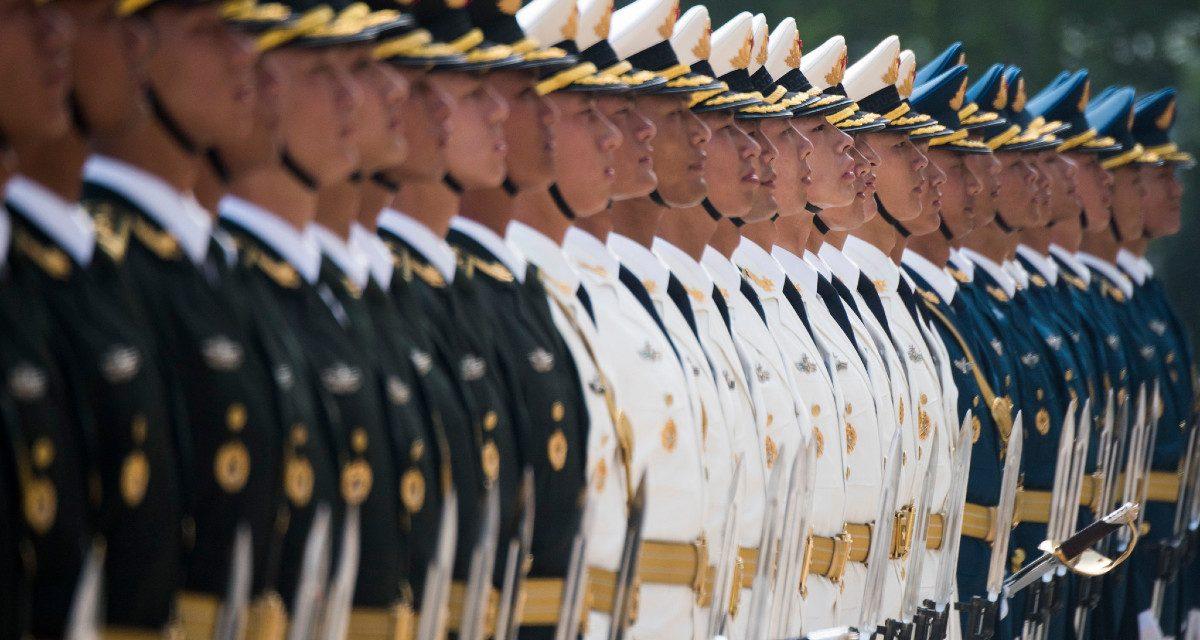What are the fundamental tenets of China’s approach to political warfare? What does it look like when Beijing employs political warfare in the real world? And how is it different, in both theory and practice, from the way the United States and its allies conceptualize warfare?
In this episode of the Irregular Warfare Podcast, our guests explore these questions and more. Dr. Ross Babbage is a nonresident senior fellow at the Center for Strategic and Budgetary Assessments, served as the head of strategic analysis in Australia’s Office of National Assessments, and is the author of the book The Next Major War: Can the US and its Allies Win against China? David Stilwell is the assistant secretary of state for the Bureau of East Asian and Pacific Affairs, a retired US Air Force officer, and former director of the China Strategic Focus Group at US Indo-Pacific Command.
During the discussion, the two offer examples of China’s information operations and how they intersect with a variety of global security challenges. They also share recommendations on how to counter China’s political warfare and build resilience against it.
You can listen to the full episode, hosted by Adam Darnley-Stuart and Julia McClenon, below, or find it on Apple Podcasts, Stitcher, TuneIn, Spotify, or your favorite podcast app. Be sure to subscribe so you don’t miss an episode!
Image credit: Petty Officer 1st Class Dominique A. Pineiro, US Navy


Wow. What an excellent podcast — so informative.
As to a divide within Chinese society that the U.S./West — via its political warfare — may wish to exploit (if, indeed, we still can — see my "note" at the bottom of my comment below), consider the following:
Much as in the U.S./the West today — likewise within China also — there appears to be at least two different specific grouping; who, if they do not already formally and aggressively stand against each other now, certainly can be "helped" to do so in the near future:
One group consists of the more rural-living, the more-religious, the less-educated and the more-traditional individuals and groups — living more in the interior of the country. These folks — generally speaking in both China and the U.S./the West — (a) contribute far less to the GDP of their countries; this, at least in part because they (b) seem to value such things "cultural conservatism" over such things as "liberalism." (???) Whereas:
The other group consists of the more urban-living, the less-religious, the more-educated and the less-traditional individuals and groups — living more in and near the commercial coastlines. These folks — generally speaking in both China and the U.S./the West — (a) contribute far more to the GDP of their countries; this, at least in part because they (b) value such things "liberalism" over such things as "cultural conservatism." (???)
To see more about this divide in China — a divide that the U.S./the West may wish to exploit via its political warfare initiatives today and in the future — consider the 2015 Foreign Policy paper "What it Means to Be ‘Liberal’ or ‘Conservative’ in China: Putting the Country's Most Significant Political Divide in Context" by Taisu Zhang. Here is an excerpt from said paper:
"Many of the findings (which have not yet been peer reviewed, and are subject to change) are intuitive to those who have some basic familiarity with Chinese ideological trends: Respondents who are more nationalist also tend to support both the current 'Chinese Socialist' political system — along with the limitations it places on civil rights and liberties — and state control over the economy. In contrast, those who view Western ideals more favorably tend to support constitutional democracy, human rights, and free market reforms. In Chinese political terminology, the former are commonly called 'leftists,' and the latter 'liberals.' These terms are more than mere descriptive labels; they represent fairly coherent intellectual and political factions that are consciously antagonistic towards each other. Pan and Xu find that leftists enjoy greater popular support in lower-income, inland regions, compared to wealthier coastal provinces, whereas the opposite is true for 'liberals.' …
Compelling as it may seem, this argument, too, has some empirical difficulties: Until the past few years, the dominant socioeconomic or political positions in the Chinese intellectual world were clearly liberal ones: most intellectuals argued for greater institutional restraints on state activity, free market reforms, and stronger protection of civil and political rights. Even today, Pan and Xu’s paper finds that highly educated individuals are generally more liberal than less educated ones. When cultural conservatism reemerged as a somewhat influential ideological position during the later 1990s, its proponents could arguably reap greater social benefits by developing a liberal affinity, rather than a leftist one. For the most part, this did not happen."
(Note: The U.S./the West's ability to exploit this such "most significant divide in China;" this would seem to have been — significantly if not permanently — damaged by the U.S./the West's most recent move, ourselves, away from such things "liberalism" and toward such things as "cultural conservatism?")